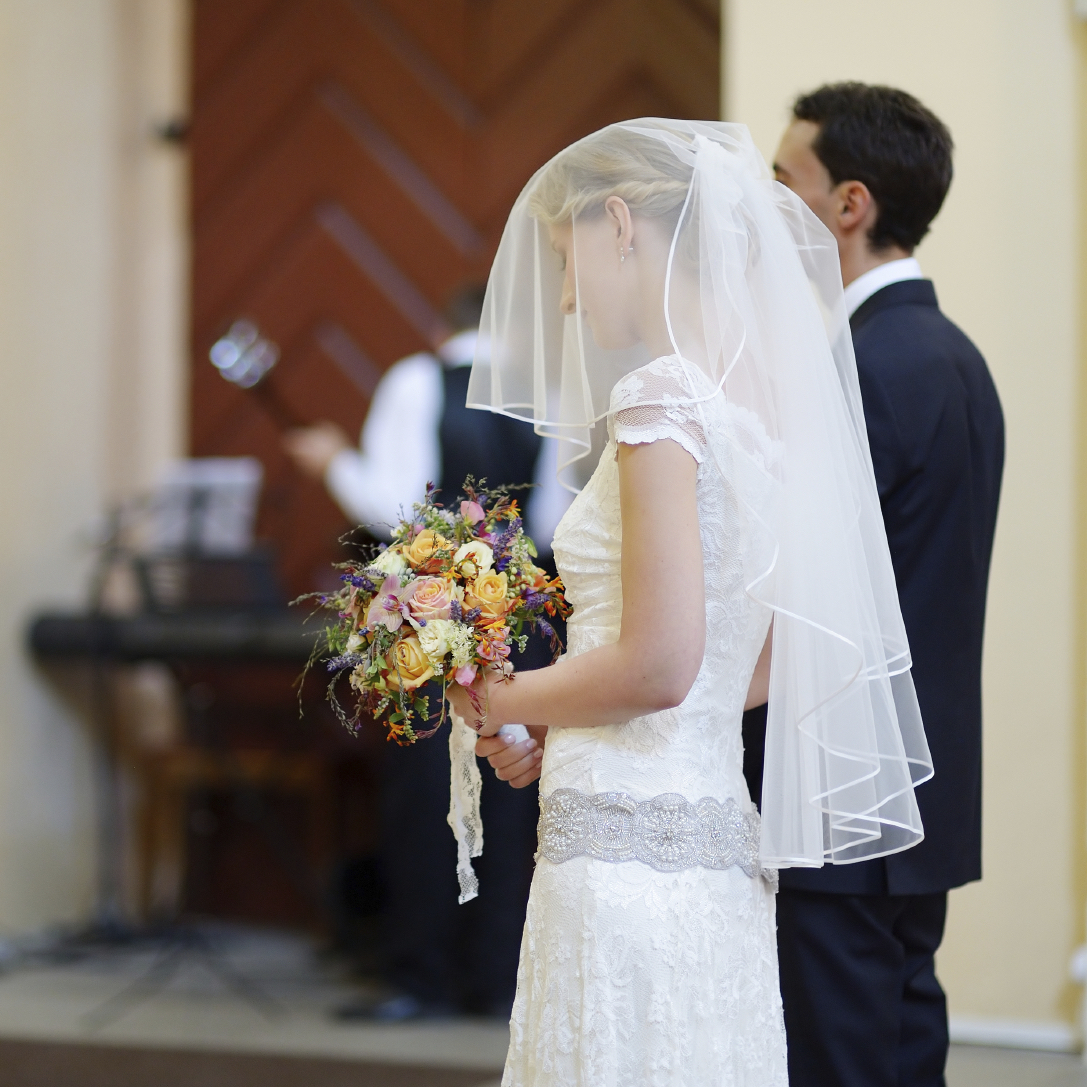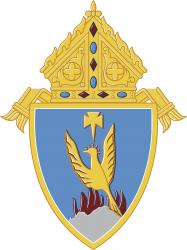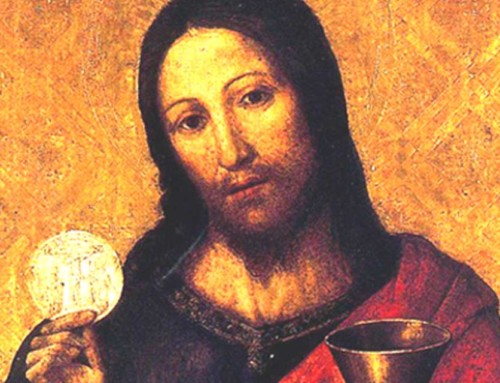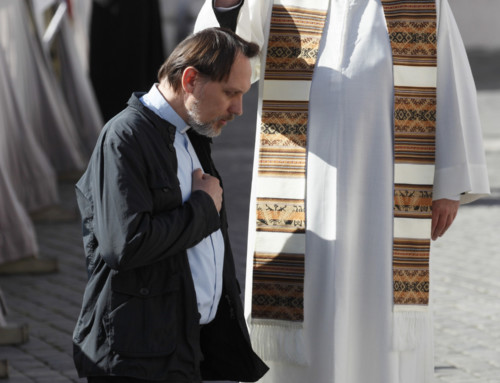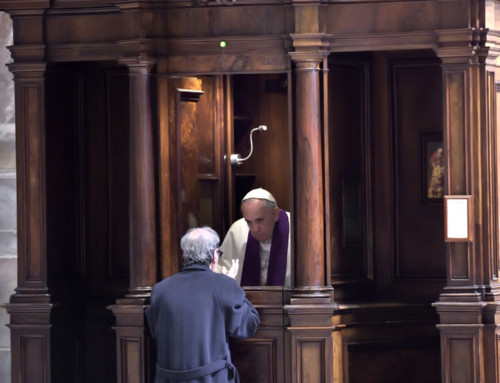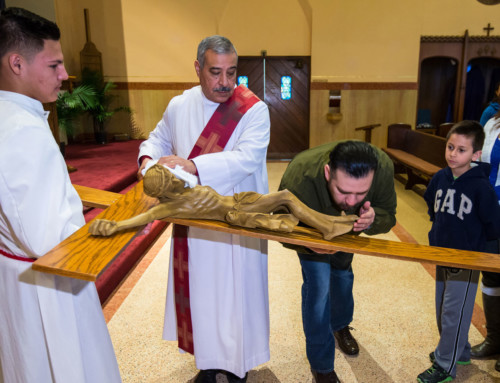[The Eucharist is] the memorial of the love with which he [Christ] loved us “to the end,” even to the giving of his life. In his Eucharistic presence, he remains mysteriously in our midst as the one who loved us and gave himself up for us. — CCC, no. 1380
In the Eucharist, Catholic married couples meet the one who is the source of their marriage. “In this sacrifice of the new and eternal covenant, Christian spouses encounter the source from which their own marriage covenant flows, is interiorly structured and continuously renewed.” Pope Benedict XVI explains how, in the Eucharist, the very meaning of marriage is transfigured: “the imagery of marriage between God and Israel is now realized in a way previously inconceivable: it had meant standing in God’s presence, but now it becomes union with God through sharing in Jesus’ self-gift, sharing in his body and blood.”
Moreover, Pope Benedict points out that the sacramental mysticism he mentions is “social in character.” The Eucharist “makes the Church” because “those who receive the Eucharist are united more closely to Christ. Through it Christ unites them to all the faithful in one body—the Church.” In the Eucharist, spouses encounter the love that animates and sustains their marriage, the love of Christ for his Church. This encounter enables them to perceive that their marriage and family are not isolated units, but rather that they are to reach out in love to the broader Church and world of which they are a living part.
Marriage continually sends the believing Catholic back again to the Eucharist. Here is where the gratitude that has become a life-giving habit in a marriage can be fully and completely expressed. “Eucharist,” after all, means “thanksgiving.” In the Eucharist one thanks God the Father for his supreme gift, the gift of his risen Son, who, in turn, bestows most fully the divine life and love of the Holy Spirit.
Marriage is a school for gratitude. By celebrating the Sacrament of Marriage, “Christian spouses profess their gratitude to God for the sublime gift bestowed on them of being able to live in their married and family lives the very love of God for people and that of the Lord Jesus for the Church.”
Procreation and education, the basic and irreplaceable service of the family to society, are part of a formation in love and a formation for love that is a participation in building up the Kingdom of God. Just as the Church is a “sacrament . . . of communion with God and of the unity of the entire human race,” and the family contribute to the unity of humanity and to humanity’s communion with God.
For example, since the Eucharist “commits us to the poor,” so the hospitality of Christian marriage becomes enlarged as a commitment to the “preferential option for the poor” by training each family member to recognize the image of God in each other, even the least. Thus, the natural virtue of marital hospitality is nourished and formed even more widely by the spouses’ Eucharistic life.
Their hospitality, in turn, will build up the Church, making the Church a more hospitable or homelike place and thereby an even stronger witness to Christ’s love in the world. Thus, “the Christian family [that] springs from marriage… is an image and a sharing in the partnership of love between Christ and the Church; it will show to all people Christ’s living presence in the world and the authentic nature of the church” (Gaudium et Spes 48).
Copyright © 2009 United States Conference of Catholic Bishops, Washington, D.C. Used with permission. All rights reserved.

